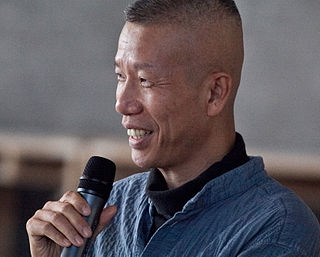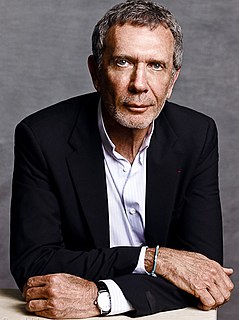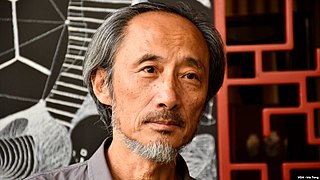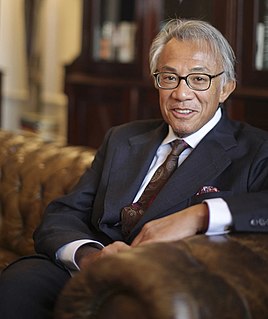A Quote by Cai Guo-Qiang
In my own art, I try to use my personal voice and effort to enable some Chinese people to see the possibilities of another kind of China. A more open China.
Related Quotes
There is the specter of "realism" that is still haunting Chinese contemporary art - that art is only an instrument, an instrument to reflect society, that it must be useful for society. Also, I have noticed many Western media outlets are very insistent on understanding contemporary art in China through this kind of realist approach. Sometimes I even sense that they are intent on, as we say in China, "picking bones of politics out of an egg of art." Or perhaps they see art as merely an instrument to reflect society.
I would have said, before the World Trade Center events, that he would try to get a normal relationship with China - making clear to China what the limits are of what America can accept, but also showing understanding for some of Chinese necessities. I thought he was moving towards the position that I have more or less advocated.
In China, your freedom is always limited, but this limitation applies to almost everyone. If someone does injustice to you, though, you have to find a way to avenge yourself - even by illegal measures. In a sense, injustice is more personal. This idea has always been in Chinese history. I think we read about freedom of speech, or lack of freedom of speech, in China so often. But I don't think people here in America think about how justice, or the idea of justice, is so important in a Chinese setting. It's probably more important than freedom of speech in the Chinese mindset at this moment.
China need to be fought back on. And what we need to do is go at the things that they are most sensitive and most embarrassing to them; that they're hiding; get that information and put it out in public. Let the Chinese people start to digest how corrupt the Chinese government is; how they steal from the Chinese people; and how they're enriching oligarchs all throughout China.
The most successful hyperpowers are the ones where there was actual intermixing. Tang dynasty China was China's golden age, and contrary to what I was told when I was growing up, Tang China was founded by a man who by today's standards was no more than half Chinese. It was a mixed-blood dynasty that pulled in 'barbarians' from the steppe.
I think that the exchange is very important. Before I did the exhibition in Shanghai, I was a judge for the John Moores Painting Prize and that was very interesting for me, because some of the judges are Chinese and some are British, and we look at the work together. It was fascinating that most of the time we were in complete agreement, but some of the time we were not. People send their works from all over China. For a foreigner, this gave me a very good picture about what is happening in China and its art today.
The Chinese said of themselves several thousand years ago: China is a sea that salts all the waters that flow into it. Theres another Chinese saying about their country which is much more modernit dates only from the fourth century. This is the saying: The tail of China is large and will not be wagged. I like that one. The British democracy approves the principles of movable party heads and unwaggable national tails. It is due to the working of these important forces that I have the honour to be addressing you at this moment.








































